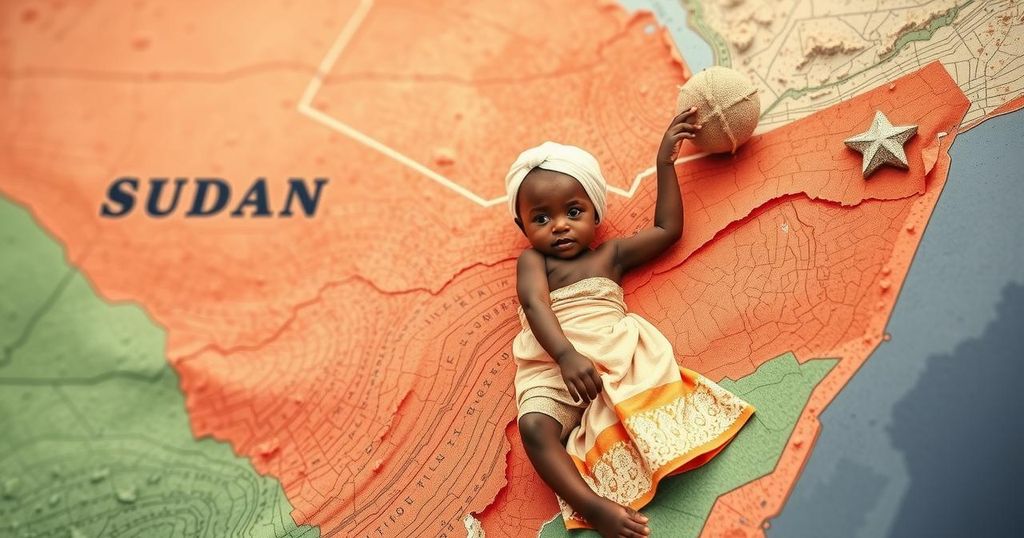Sudan Faces Expanding Famine Crisis Amid Continuing Civil War
Sudan’s ongoing civil war has led to a widening famine crisis affecting five regions, with nearly 24.6 million people requiring urgent food aid. Efforts to negotiate peace between the military and RSF have failed, exacerbating one of the world’s worst humanitarian crises. Famine conditions have been confirmed in multiple camps, with warnings of imminent spread. Violence has disrupted agriculture, leading to increased starvation and suffering among the populace.
Sudan is currently experiencing an escalating humanitarian crisis as a result of its ongoing civil war, with widespread famine affecting five distinct regions, according to a report from independent food security experts. Approximately 24.6 million individuals, equating to nearly half of Sudan’s population, require urgent food assistance. The situation has been exacerbated by a 20-month conflict between the Sudanese army and the paramilitary Rapid Support Forces (RSF), which began following a coup in 2021 and escalated into full-scale war in 2023. Various attempts to broker peace between the conflicting parties have thus far failed to yield any results.
The United Nations-backed Famine Review Committee (FRC) has expressed grave concerns over the potential for a more catastrophic crisis if the fighting continues. The FRC is connected to the Integrated Food Phase Classification (IPC), a collective initiative aimed at assessing famine conditions globally. The FRC reported earlier this week that famine conditions have now expanded beyond the initial location identified in August, at the Zamzam camp in Darfur, to new areas, including additional camps in Darfur and regions in South Kordofan.
The report states that “famine is the most extreme manifestation of human suffering, representing a catastrophic collapse of the systems and resources essential for survival,” highlighting the intertwined crises of food scarcity, health degradation, and social disintegration. The FRC also anticipates that five additional areas in Darfur could face famine by May, with a risk of it spreading to a total of 17 areas. Reports indicate that ongoing violence has severely disrupted agricultural activities, forcing farmers to abandon their crops and contributing to widespread looting and destruction of resources. The ramifications of the conflict have been devastating, with numerous civilian casualties reported and thousands affected by violence, abduction, and sexual assault.
The humanitarian situation in Sudan is dire due to the intensifying civil war that began in 2021. Following the power struggle initiated by a coup involving the army and the RSF, the country has descended into chaos, creating a profound humanitarian crisis marked by skyrocketing hunger and malnutrition rates. The conflict has severely impacted agricultural production and access to resources, leading to urgent food assistance needs for millions. The United Nations has been actively involved in assessing the famine situation and providing coordinated responses to the crisis, although political tensions have hampered these efforts.
In summary, Sudan is confronting a critical and expanding famine crisis due to a persistent civil war that has devastated the nation’s infrastructure and social fabric. With millions in dire need of food assistance and predictions of further deterioration, the situation underscores the urgent need for peace negotiations and international support to prevent an even greater humanitarian catastrophe. The ongoing violence and instability threaten not only the immediate well-being of millions but also the long-term recovery of the region.
Original Source: www.bbc.com




Post Comment